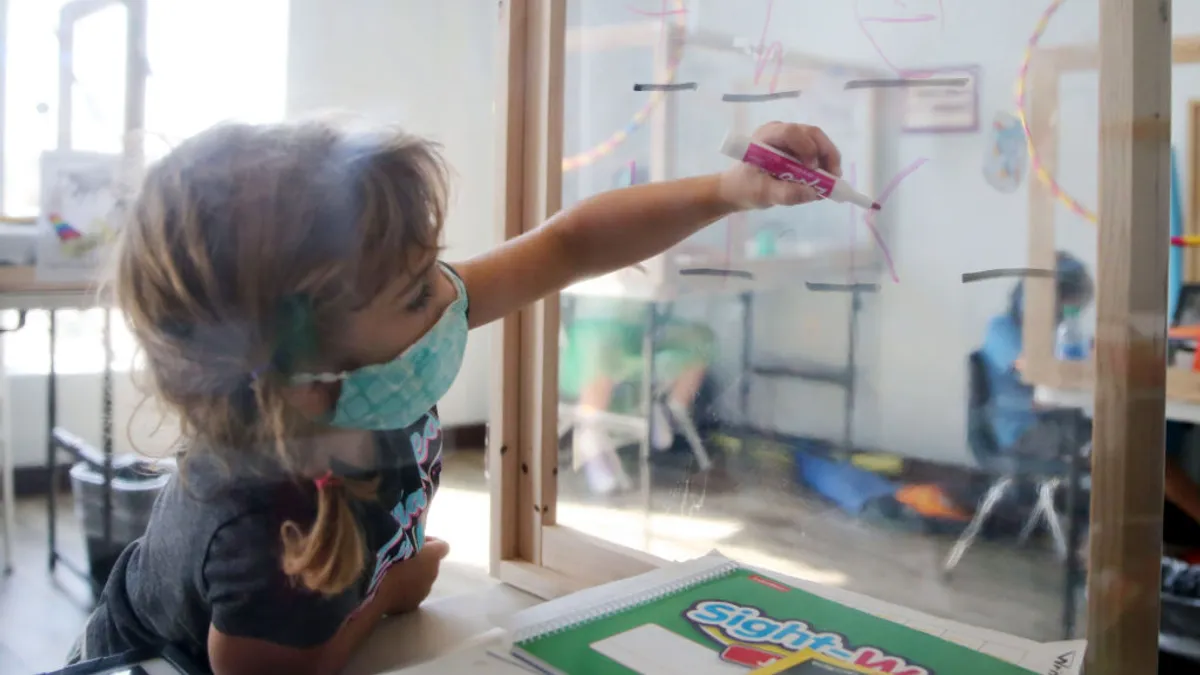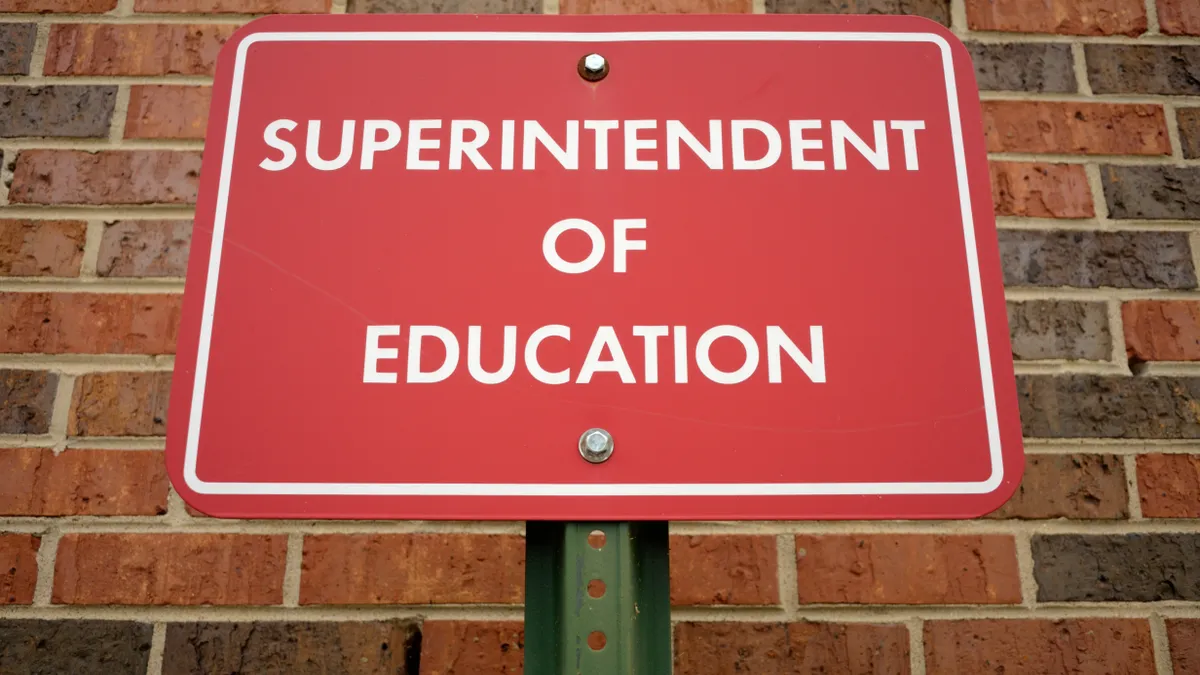The House Education and Workforce Committee on Wednesday passed two bills along party lines, 18-12, advancing the Trump administration's agenda on parental consent for use of student pronouns and barring federal funds for the teaching of "gender ideology" in public schools.
At the same time, the committee rejected a Democratic-sponsored "resolution of inquiry" seeking documentation about the Trump administration's plan for dismantling the U.S. Department of Education.
Republican supporters of the measures that passed said the proposals would honor parental rights, while Democrats argued they would harm students and schools.
In recent years, said Rep. Burgess Owens, R-Utah, schools "have been teaching a radical view of gender." Owens is the sponsor of H.R. 2617, the Say No To Indoctrination Act.
The bill would codify President Donald Trump's Jan. 20 executive order recognizing only two sexes — male and female — into federal education law, Owens said.
"Young children should be honored and protected, not told that something's wrong with their body or that they should mutilate themselves in order to look like another gender," Owens said. "Radical ideologues should never get taxpayer money to tell vulnerable children they are born in the wrong body."
He added that the legislation is "a simple step to restore sanity and common sense to our educational system."
But Rep. Mark Takano, D-Calif., called the proposal a "waste of time and energy." Takano said the measure is targeting "an already vulnerable population of students and ensuring that they won't be able to find support or representation in the place where they go to learn every day."
He cited data from The Trevor Project that found anti-transgender laws in states increased incidents of past-year suicide attempts among transgender and nonbinary youth by up to 72% between 2018 and 2022.
Democratic lawmakers accused their Republican colleagues of not caring about the mental health of transgender students. Republicans countered that they are empathic.
"When we tell a boy that they are a girl, when we tell them that they are confused, we tell a girl they are a boy, we are lying to them," said Rep. Randy Fine, R-Fla., in his first address in Congress. "Those kids are struggling. And when the government tells them something that is not true, it makes that struggle worse."
'Common sense' legislation
The debate about approaches to students' genders continued with discussions on H.R. 2616, the Parental Rights Over The Education and Care of Their Kids Act. The PROTECT Kids Act would deny federal funding to elementary and middle schools that don't get parental permission before changing a student's "gender markers, pronouns or preferred name on any school form" or "sex-based accommodations, including locker rooms or bathrooms."
The bill's sponsor, committee Chair Tim Walberg, R-Mich., said the "common sense" legislation protects a parent's right to information regarding their child. He cited data from Parents Defending Education, a conservative grassroots organization, that found nearly 21,300 schools across the country with policies that allowed schools to use students' preferred genders without seeking parent permissions.
"Elementary and middle school years are critical times in the development of a child's life, and it can be confusing and tumultuous for some young kids, as well as parents," Walberg said. "That's why schools need to communicate with parents. The most important stakeholders in a child's life are his or her parents."
But Rep. Suzanne Bonamici, D-Ore., called the proposal an attempt by conservative lawmakers to "insert the federal government into public school classrooms by micromanaging educators and harming, once again, LGBTQI students."
She added that while many transgender and nonbinary students have supportive parents, some students fear negative repercussions or abuse from their parents if they question or change their gender identities.
"We don't need adults in Congress making things worse for our nation's children," Bonamici said.
Ranking member Rep. Bobby Scott, D-Va., also criticized the burdens the proposal would place on schools. "If every single teacher I had in school had to write to my parents to get permission to call me Bobby instead of Robert, that would have been a ridiculous waste of my parents’ time and their time, and this is a waste of time today."
There are no related bills pending in the Senate for either H.R. 2617 or H.R. 2616.
'Why is this so secret'
The committee also debated House Resolution 237, a Democratic-led proposal to require the Education Department to turn over documentation about the downsizing and closure of the agency. Members voted 18-12 along party lines to recommend that the full House not consider or pass the measure.
Scott said the public has been "left in the dark" on the details of the department's plans to carry out its statutory requirements after the agency cut its workforce in half and made other changes. Trump has signed an executive order directing U.S. Education Secretary Linda McMahon to begin the process of closing the Education Department.
"There are countless pitfalls that could result from actions being taken at the department, especially if they've been taken in darkness with no chance of coequal branch of government to provide advice or counsel," Scott said.
"Saying that the president has issued an order and said he'll make sure that these services are provided is just not sufficient," said Rep. Jahana Hayes, D-Conn., adding, "If this plan is so great, why is this so secret?"
Republican lawmakers, however, said the Trump administration has been forthcoming with information and that the Education Department is fulfilling its duties.
"Federal involvement in education has resulted in lower scores and higher costs, which is why Republicans are working to return education to the states, so students, teachers, parents — not systems — are empowered," Walberg said.







 Dive Awards
Dive Awards













